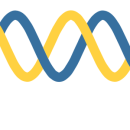Biopython for Mac OS X 1.83 freeware
Biopython for Mac OS X is a set of freely available tools for biological computation written in Python by an international team of developers. It is a distributed collaborative effort to develop Python libraries and applications which address the needs of current and future work in bioinformatics. The source code is made available under the Biopython License, which is extremely liberal and compatible with almost every license in the world.
| Author | Biopython.org |
| Released | 2024-02-07 |
| Filesize | 18.40 MB |
| Downloads | 1345 |
| OS | Mac OS X |
| Installation | Instal And Uninstall |
| Keywords | biological, python, biopython, bio |
| Users' rating (14 rating) |
Biopython for Mac OS X Free Download - we do not host any Biopython for Mac OS X torrent files or links of Biopython for Mac OS X on rapidshare.com, depositfiles.com, megaupload.com etc. All Biopython for Mac OS X download links are direct Biopython for Mac OS X download from publisher site or their selected mirrors.
| 1.83 | Feb 7, 2024 | New Release | |
| 1.81 | Feb 12, 2023 | New Release | |
| 1.80 | Nov 18, 2022 | New Release |

